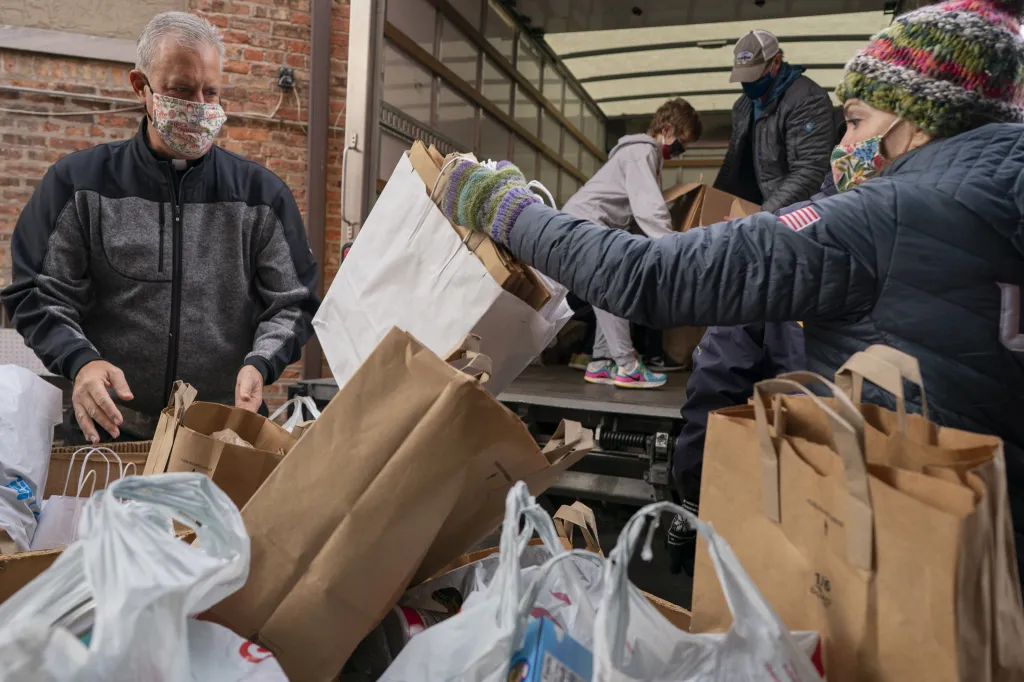Copyright Chicago Tribune

Barring a last-minute change, SNAP benefits, which help tens of thousands of Lake County residents buy food, will lapse Saturday because of the federal government shutdown, as local food pantries and nonprofits raise alarms and urge legislators to act. Supplemental Nutrition Assistance Program, commonly known as SNAP or food stamps, is used by an estimated one in eight Americans to buy groceries. Gov. JB Pritzker signed an executive order Thursday directing $20 million to food banks across the state. Illinois typically administers roughly $350 million in federal food aid monthly to about 1.9 million people across the state, according to the Illinois Department of Human Services. Quinton Snodgrass, president and CEO of nonprofit United Way of Lake County, warned that people aren’t fully aware of the scale of the situation facing the county if SNAP lapses. There’s a mistaken assumption about just how many people are receiving benefits, he said. According to recent IDHS numbers on Lake County, it’s roughly 37,000 households, or about 71,000 people. The biggest initial shock will be on individual families, Snodgrass warned, with a sudden loss of benefits that many have “built their budgets around.” Food is the third-highest cost to Lake County families, taking up a “huge chunk of the budget.” And while the county has a network of services, it doesn’t have the capacity to take up the slack that quickly. Efforts can be “ramped up,” but it’s “not a quick process,” he said. “It can’t adapt instantaneously,” Snodgrass said. Cool Ministries Food Pantry in Waukegan, one of the larger pantries in the county, is worried about what the landscape will be after Saturday. Executive Director Mindy Lindholm said the pantry serves about 6,500 people a month, but has seen a roughly 35% increase in the last week, which she at least partially attributes to concerns over the upcoming SNAP lapse. Listening to people talk at the food pantry, Lindholm said they’ve heard “a lot of uncertainty.” “They’re asking us, ‘What’s going to happen?’ ‘What’s going on?’” Lindholm said. “I wish I had a more solid answer, but we’re all in limbo.” If benefits don’t arrive in November, Lindholm warned it will be “devastating” for some community members. These are working residents and families, she said, facing rising grocery costs. “People will go hungry,” she warned. Chris Hoff, executive director of the Lake County Health Department and Community Health Center, said they’ve also got serious concerns. While they don’t administer SNAP benefits, Hoff said half of their patients receive them. Families short on funds will be buying whatever they can afford, which may not be as healthy or nutritious, Hoff said, and they’ll be facing increased mental stress. SNAP isn’t “just a program,” he said. It’s something people depend on that has a critical impact on health. Now, government issues “far beyond our tables at home” have become a barrier to a healthy life. “It’s really frustrating,” Hoff said. “Food is medicine. Food is how we take care of ourselves.” There will also be an economic loss felt by area businesses, as families cut back on shopping, whether for food or otherwise, he said. Snodgrass said the effects won’t just be felt by those receiving SNAP benefits. ALICE families, those who are above the poverty line but make too much to receive many benefits, rely on food pantries and other services. They will find the county’s resources strained as more people have to go to such programs, he said. While Hoff said officials have known some changes would be coming to SNAP due to federal-level changes, including eligibility changes that he said will mean fewer people using the program, the abrupt cut is “crazy” and putting “families and individuals in harm’s way.” Speaking with other nonprofits, Lindholm said there’s a sense their “hands are getting tied,” between federal cuts and now the government shutdown. While the longtime food pantry isn’t at the point of turning people away, she urged people to donate money or food if they can. While the situation has the familiar sense of fear and uncertainty they saw during the pandemic, Lindholm said the nature of the situation is far different. “The government isn’t shut down to keep everybody safe; they’re shut down because of an impasse,” Lindholm said. “It feels like we’re kind of all paying the price because lawmakers can’t get it together.” Snodgrass, Lindholm and Hoff all encouraged residents to increase their support if they’re able, whether to friends, family, or by donating money or food to local pantries and food networks.



